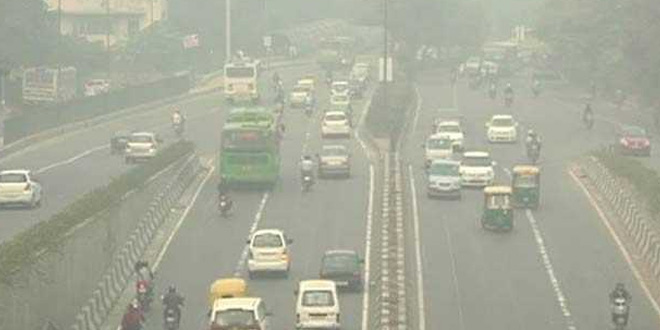New Delhi: A day before the U-17 FIFA world cup kicks off in Delhi, environment NGO Greenpeace said today the level of coarse air pollutants PM10 “far exceeded” the safe levels in the host cities of the tournament last October.
The Greenpeace report came on a day the national capital recorded ‘poor’ air quality for the second consecutive day. The NGO claimed high level of PM10 may “reduce” the quality of football played during the tournament.
According to the report, in October 2016, the average levels of PM10 – coarse particulates measuring less than 10 microns in diameter – were 304 and 100 microgrammes per cubic metre (ug/m3) in Delhi and Mumbai.
The 24-hour average prescribed standard of PM10 is 100 and the annual prescribed average is 60.
Also Read: New Delhi’s Air Quality Enters Red Zone, Forecast Grim
Delhi will co-host the tournament with Mumbai, Kochi, Margao (Goa), Guwahati and Kolkata.
“PM10 level on October 6 last year in Delhi was 234痢/m3, and 320痢/m3 on October 16 (when Delhi hosts the last tournament match this year).
“These values are over 4 times and 6 times above the World Health Organisation’s limits of 50痢/m3 over a 24-hour period, and over 2 and 3 times above India’s PM10 standards of 100痢/m3 (over a 24 hour period),” a Greenpeace India statement said.
Greenpeace executive Sunil Dahiya said such levels of air pollution could also reduce the quality of football played at the tournament.
According to a study by the German League, football matches that take place during periods of heavy air pollution are played more slowly. The study also found that health impacts are strongest when PM10 concentration is above 50痢/m3 and when players have fewer than five rest days between matches, he said.
Last month, in a series of meetings the Supreme Court-monitored Environment Pollution (Prevention and Control) Authority had expressed concern over a possible spike in pollution levels during the world cup and had directed concerned agencies to take preventive measures.






























